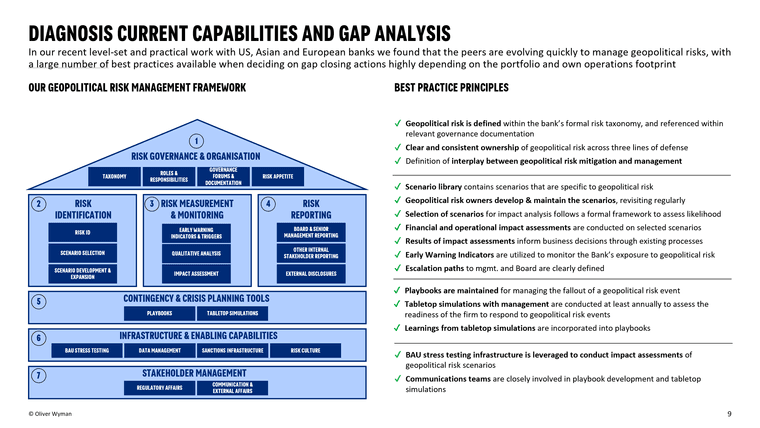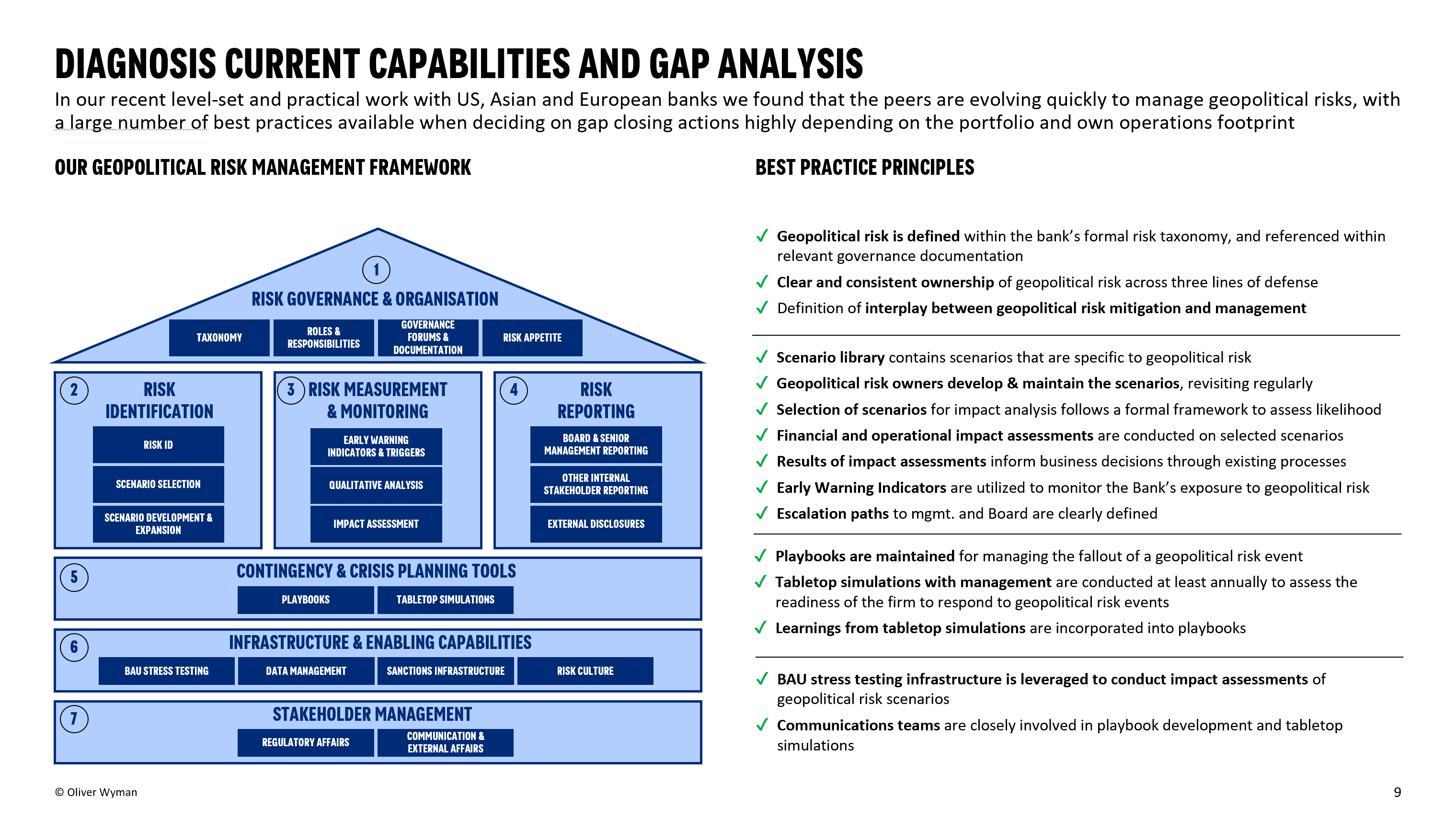Managing Geopolitical Risk for Banks
-
Geopolitical tensions are dominating the headlines across the globe with little evidence that they will subside in the near term. As the industry experienced during the Russian invasion of Ukraine, geopolitical risks are real and can manifest quickly. Most firms were ill-prepared for this event, and many suffered significant disruption and economic damage. Banks need to avoid this happening again
It is not ‘only’ equity analysts and supervisory boards who are asking questions about banks’ preparedness. Supervisors have started paying attention to the topic, with the ECB naming geopolitical risks as the number one priority for 2025-2027. However, while supervisors are clear that banks must understand and manage geopolitical risks, they are vague on HOW exactly banks should do this and where the bar lies
Unsurprisingly, we see considerable uncertainty amongst global CROs about how to respond to stakeholder queries and expectations. The four most common questions are:
- What are the expectations from external stakeholders?
- How are geopolitical risks different from well-known macroeconomic and country risks?
- What are other institutions doing?
- What can I practically do to manage my geopolitical risks? Which existing capabilities can I build on and what else do I need?
Today, we want to start answering these questions, drawing on the expertise of Oliver Wyman’s global geopolitical risk platform. We have been engaging with clients globally on geopolitical risk management for many years, with a significant uptick in activity since the Russian invasion of Ukraine
Managing geopolitical risks may seem like an abstract thought exercise but it should not be. There are practical actions you can take and capabilities you can build on to increase your preparedness and resilience in the face of an increasingly risky geopolitical landscape

Get in touch to hear our latest thinking

